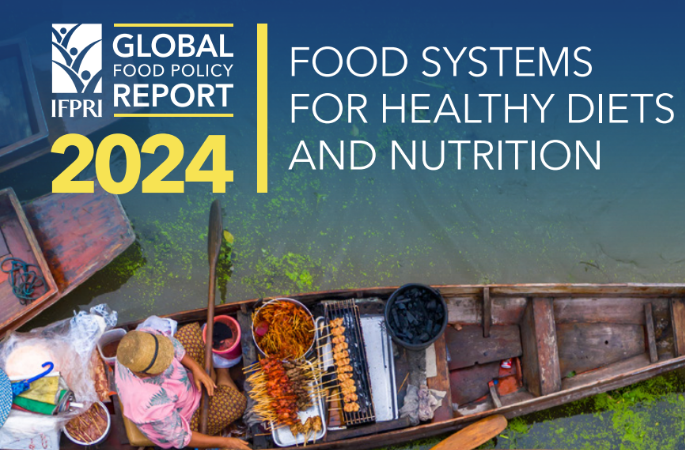Document provides solutions and policy recommendations to foster the transformation of agri-food systems; school feeding is one of the topics addressed
Brasília, Brazil, July 2, 2024 – The International Food Policy Research Institute (IFPRI) launched its 2024 Global Food Policy Report. The document provides policy and governance solutions to strengthen diet quality and nutrition, primarily in low- and middle-income countries.
The publication also examines priorities for future research on food systems for better nutrition. In its presentation, the document mentions that the work was based on a broad body of research on diets, agriculture, and food systems from IFPRI and the Consultative Group on International Agricultural Research (CGIAR). Additionally, it mentions collaboration with professionals from different regions of the world, focusing on the need to focus on diets that benefit both people and the planet.

“We emphasize the need for sustainable healthy diets and provide evidence-based recommendations on ways to make the foods that form these diets more desirable, affordable, accessible, and available. This holistic approach recognizes the interaction between dietary patterns, food environments, food production, food-related policies, and broader social and environmental factors,” explained Purnima Menon, Senior Director of Food and Nutrition Policies at CGIAR and IFPRI, and Deanna Olney, Director of the Nutrition, Diets, and Health Unit at IFPRI, in an article about the document.
The report also explores how demand can support healthier food choices, as well as the need to invest in improving affordability and ways to strengthen food environments to support healthy diets. Additionally, it highlights supply-side ways to improve diets, including increasing fruit and vegetable consumption and evaluating the role of animal-source foods, and discusses how effective governance can help achieve change in food systems.
Following the presentation of the key findings and recommendations of the report by leading IFPRI researchers on diets and nutrition, a distinguished panel of partners and experts discuss the report. The discussions focus on the challenges and opportunities to transform food systems so that everyone can reap the benefits of healthy and sustainable diets.
The role of school feeding
The document highlights the role of school feeding programmes, considered the world’s most extensive safety net in terms of the number of countries implementing them. It states: “School feeding programmes can improve the nutritional outcomes of school-aged children and are particularly effective for the most vulnerable children.” It adds that school feeding programmes can improve enrollment rates, attendance, and also learning.
It specifically mentions Brazil’s National School Feeding Programme (PNAE), which serves more than 40 million students every school day, highlighting the country’s public procurement experience. “In some countries, including Brazil, school feeding interventions have been linked to food procurement programmes that work with smallholder farmers, thus adding regional economic multiplier effects.” In the Brazilian case, it has been mandated by law since 2009 that at least 30% of the food offered in schools comes from local family farming.
The full document is available at this link.






